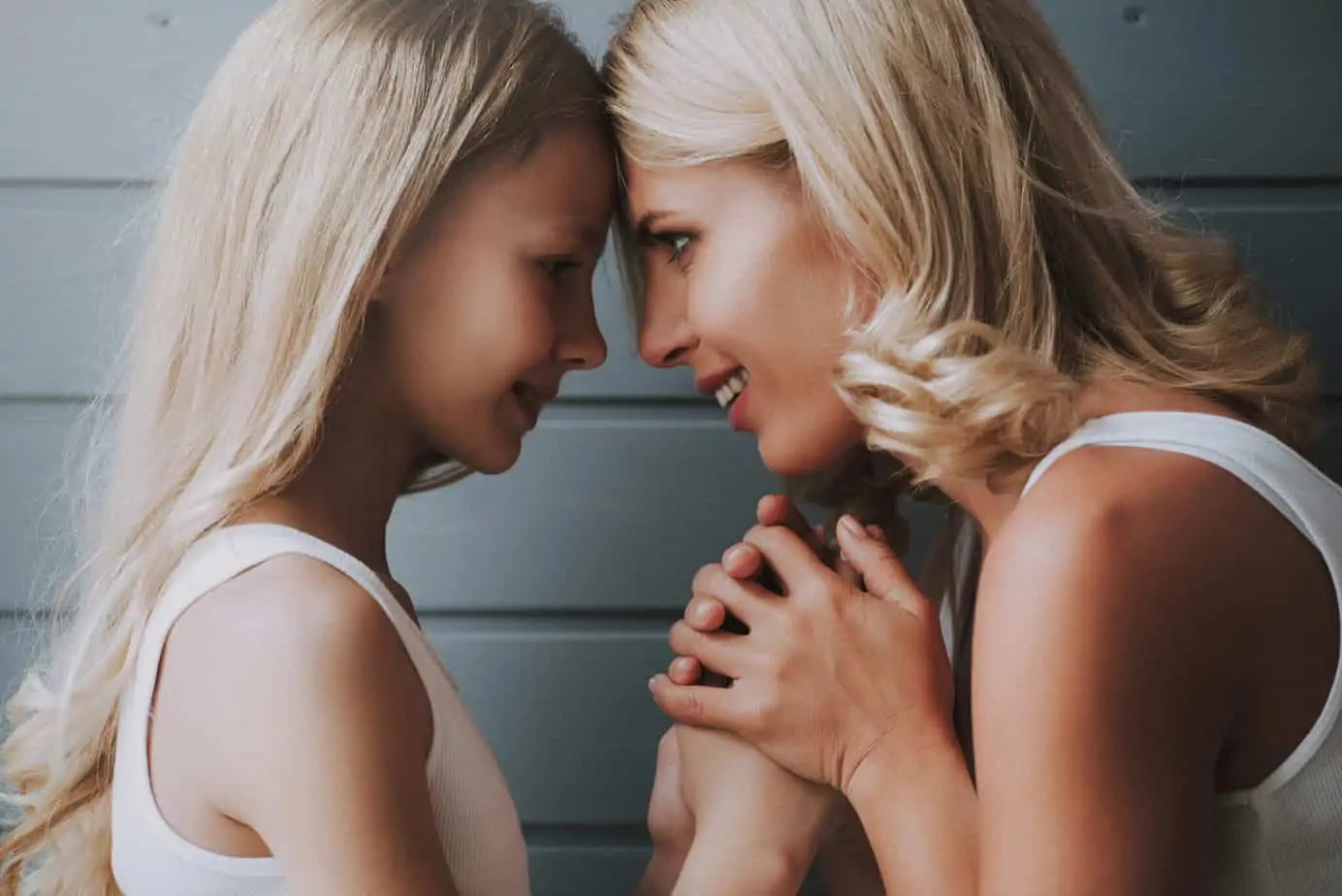As parents, teaching coping skills for kids specifically ensures we are giving them the right tools to handle big emotions! Be sure to check out the Emotions Identification Bundle and Calm Down Toolkit with mindful breathing posters.

Helping To Develop Strong Coping Skills For Kids
Everyone has been experiencing some pretty big emotions these past few years. Kids, in particular, were having a difficult time understanding why they suddenly couldn’t have a birthday party or visit their friends down the street. As parents, teaching coping skills for kids specifically ensures we are giving them the right tools to handle these big emotions.
These moments can happen at any given moment, so it’s important to have the tools and practices ready to go when you need them. Not only will you figure out how to support your own children, but it will also go a long way in staying sane as parents!
Today, we’re talking about some of the best coping skills for kids and how you, as a parent, can help your child develop these skills to use on their own and well into adulthood.
What Are Coping Skills?
Coping skills are habits or activities we use to manage emotions in a healthy way. They’re great for those big and hard to deal with emotions such as:
- Anxiety
- Stress
- Anger
They allow you to cool down your feelings to help you get out of feeling helpless in a situation!
One of my favorite tools to use with clients and my own children, are found in the Calm Down Toolkit which gives them an array of tools to choose from that resonates with them.
When we manage stress, we feel better physically and emotionally and perform better in our day-to-day lives. Coping skills are something everyone uses that we develop over time through trial and error. And, since kids are still going through all those experiences, they need added help recognizing their feelings and managing them.
When kids learn coping mechanisms, they can relax and stop that fight or flight response. Everyone benefits when they pause and consider their options before jumping into action.
These coping mechanisms also help to change their focus outside of themselves, which reduces their overall worry.
Types Of Coping Skills For Kids
Coping skills are all about protecting the mental well-being of your kids. While there’s time in the day for play, work, and family, these unpleasant emotions often come unexpectedly.
Here are some basic coping skills you can do with your child to teach them how to manage their emotions…
Problem Solving
Kids are known for having big feelings, whether it’s because their ice cream scoop fell on the ground or they’re stressed about finishing a project for school.
We can think of problems in two ways. First, does it have an actual solution, or is it an emotion we need to find a release for?
If we can solve the problem, making a plan can help make the problem seem more attainable.
Example: To fix a fallen ice cream scoop, what do we need to do first? Perhaps the first step should be picking it up. What equipment do we need to do so? A napkin! Once that’s done, what’s step two? Getting a new ice cream scoop, perhaps?
Label Your Feelings
If they’re mad or sad about the situation and you can’t provide a solution to a problem, the best solution may be acknowledging their feelings.
Emotion Picture Cards help kids learn to recognize and name their emotions, and given them a tool to help communicate them as well.
Many kids don’t know how to express what they’re feeling. By helping them label their feelings first, they can connect these emotions to other instances and know what they did before to make them feel better!
Tip: Try to increase their vocabulary around feelings and vocalize them whenever possible. You can model this practice for them by saying your feelings aloud too when you are dealing with something.
The Emotions Identification Toolkit helps kids identify, name, communicate and express their feelings, as well as what to do when big emotions come up.
Ask for Help
As far as coping skills for kids, dealing with emotions on your own is hard enough, even as an adult. Many of us don’t even ask for help when we need it! Teaching your child how to ask for help is a lifelong skill.
Tip: When they’re going through difficult emotions, pause together and give them the tools to ask for help. If they say they’re hungry, ask them what they want. Get them to directly say what they need rather than have you do the guesswork.
Mindful Breathing
The power of a deep breath can go a long way. When moments are feeling too stressful and overwhelming, breathwork can help regulate you. By breathing slowly and mindfully, it allows your child to focus on something else.
Tip: Do the breathing work alongside your child. Ask them to breathe in for four seconds while counting aloud. Then hold for four more seconds. Breathe out for four seconds. Hold for four seconds. Then repeat until you feel as though they have calmed down.
This breathwork is a skill they will use for their whole life.
The Calm Down Kit has a handful of guided breathing posters to make this easy for kids to do on their own.
Change Focus
This is another practice you can use when a kid is too overwhelmed to think about anything else. In extremely heightened states, kids cannot make connections to allow them to problem-solve. When this happens, you want to shift attention away from the problem rather than try to solve the problem.
Tip: In this case, activate the five senses and distract them with questions. What are four things that are the color purple? Name three of your favorite foods. What are two things you can hear right now?
Once their brain has shifted focus slightly, they are more ready for a problem-solving mindset.
Calm Down Kit
This is another exercise kids can use that utilizes their senses to bring down their emotions. A calm down kit contains different kinds of tactical items kids can use to engage their senses. It should include:
- Music
- Movement
- Art
Think of fidget toys, balls, play-dough, crayons and coloring books, lotion, slinky, or even a happy picture!
Tip: When creating a calm down kit, ask your kids to help choose what items to go inside. Each kit should look different for all kids. This teaches them to figure out what they like to calm down.
Play Music
Another great anxiety coping skill for kids is to encourage the use of music. They can either make their own music if you have noisemakers or instruments in the house or play some calming songs.
Music has been proven to:
- Calm anxiety
- Help with mental and physical health
- Speed healing
- Encourage creativity
Positive Self Talk
Many of us, even as adults, are guilty of putting ourselves down. We say things such as, “I could never do that,” or “They’re going to say mean things about me.”
The more upset we are at any given moment, the quicker we are to resort to negative self-talk.
Tip: Encourage your kids to treat themselves with as much kindness as they would treat others. Ask them if they would ever say such statements to other kids. Chances are, they will say no! Ask them to phrase their thinking in a supportive way that they might say to someone else.
Over time, this will improve how they think about themselves.
Write it Out
If your kid is dealing with an emotion that doesn’t have an immediate fix, it can help to just… get it out there.
Tip: If they don’t want to vocalize their feelings to you, ask them to write it down instead. Depending on their age, it could be as simple as a frowny face, a sentence, or even a whole letter. This will help them vocalize their feelings to at least themselves if they don’t feel like sharing.
My girls and I have these Mom and Daughter journals that we’ve loved using so far and have helped us stay connected and express our emotions safely and openly.
Then, encourage them to throw it away to help dispel the negativity!
How To Teach Coping Skills For Kids As A Parent
As a parent, you may be wondering the best way to implement these practice skills. Here is some step by step ways to get started with teaching coping skills to your kids:
- Prompt. If you notice that your kid is struggling with some big emotions and hasn’t said anything yet, hit the pause button. Help them identify what is happening and ask them what they need to improve the situation.
- Role model. Kids are little copycats and will always do what their parents do. As an adult, you are also doing these coping skills, although more internally. Try to vocalize how you’re feeling and what you’re doing to make yourself feel better. Good or bad feelings!
- Normalize feelings. When we begin to vocalize and model these feelings, we are helping to normalize these feelings for our kids. They should be allowed to have these big feelings. Let them know that it’s okay to feel this way, and it’s a natural reaction.
- Acknowledge the good. When you see them using a coping skill and taking care of themselves, be sure to acknowledge the powerful work they’re doing. A big part of teaching is reinforcing the good habits rather than constantly trying to rectify the bad.
- Give gentle reminders. Sometimes kids will forget to use their coping skills, especially when feeling overwhelmed. Remind them or ask them what worked before when they can’t figure it out independently. Always be kind and gentle when doing reminders.
The Takeaway
That covers some coping skills for kids you can teach as a parent. Remember that implementing these coping skills will take time and patience.
Don’t expect your child to know how to use them right away. Over time, together, you’ll figure out what works and what doesn’t. And, you have plenty of time to teach them!
More Positive Parenting Resources:
- 11 Helpful Tips For Parents With Strong-Willed Children
- 9 Positive Parenting Solutions for a Yell Free Home
- Positive Parenting Strategy: The Key to Connection Can Be Found In The Child Ego State
- 4 Main Parenting Styles: How Your Parenting Approach Affects Your Kids
- Teaching Feelings & 6 Steps to Help Kids Express Their EmotionsAs parents, teaching coping skills for kids specifically ensures we are giving them the right tools to handle big emotions.
Want even more?
Shop All Parenting Resources
Shop all of our parenting resources from self-regulation tools and managing big emotions to building self esteem and confidence. There are resources for all seasons of life!








